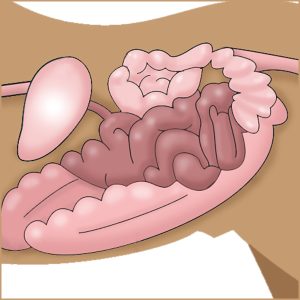
Havoc in the Hindgut
Your horse is a home The digestive tract of your horse is home to millions of microorganisms that aid in...
» View Article
Your horse is a home The digestive tract of your horse is home to millions of microorganisms that aid in...
» View Article
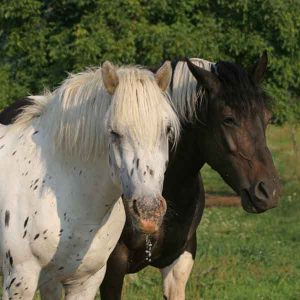
Article re-posted with kind permission by Equine Guelph: http://equineguelph.ca/index.php Story: Jackie Bellamy-Zions Early diagnosis of Equine Metabolic Syndrome (EMS) is an...
» View Article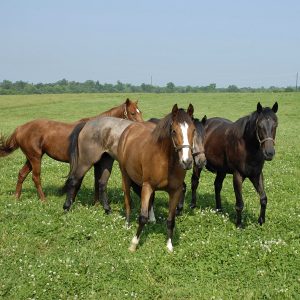
To most horse people, there is no better sight than a row of freshly bedded stalls, complete with a pile...
» View Article
Due to their past lifestyle, the majority of off-the-track Thoroughbreds will have ulcers and some type of digestive imbalance. On the racetrack, Thoroughbreds experience an intense training schedule. Their diets often consist of large amounts of grains that are high in starch and sugar, which can cause the digestive tract to become unhealthy.
» View Article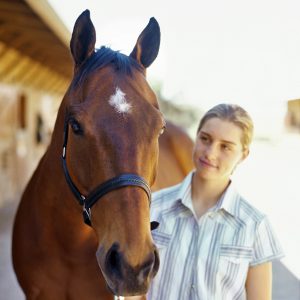
Do you believe gastric ulcers affect only high-performance athletes such as racehorses or Olympic contenders? Do you believe it takes...
» View Article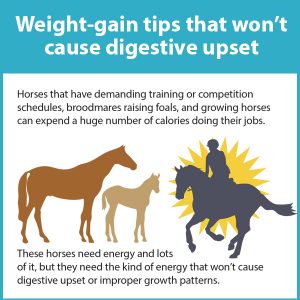
Horses that have demanding training or competition schedules, broodmares raising foals, and growing horses can expend a huge number of calories doing their jobs. These horses need energy and lots of it, but they need the kind of energy that won’t cause digestive upset or improper growth patterns.
» View Article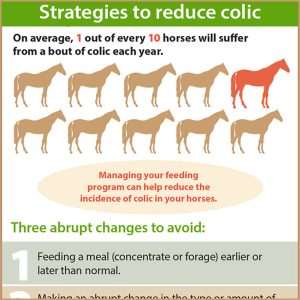
On average, 1 out of every 10 horses will suffer from a bout of colic each year. Managing your feeding program can help reduce colic in horses.
» View Article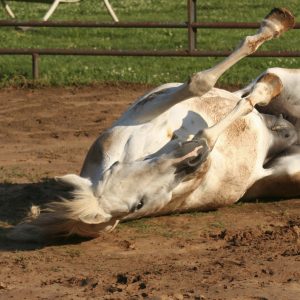
Common myth: If a colicky horse is passing manure, he will be fine. Busted: Not necessarily so, say veterinary surgeons....
» View Article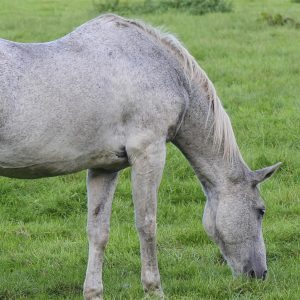
Recent research at the University of Kentucky shows that including prebiotics in a senior horse’s diet significantly reduces the markers...
» View Article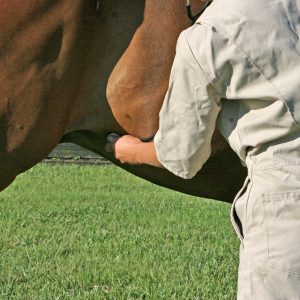
One way to determine if your horse is normal and healthy is to evaluate the rumblings of his gut. The...
» View Article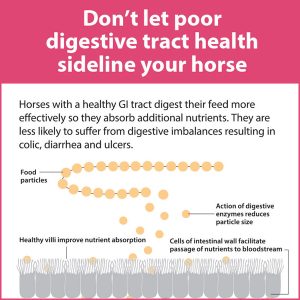
Horses with a healthy GI tract digest their feed more effectively so they absorb additional nutrients. They are less likely to suffer from digestive imbalances resulting in colic, diarrhea and ulcers.
» View Article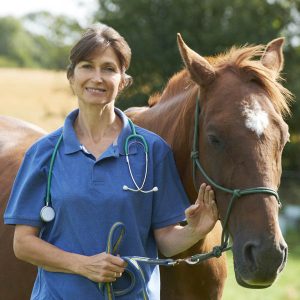
Myth: Always walk a colicky horse. Busted: Walking won’t cure colic and it isn’t always in your horse’s best interest...
» View Article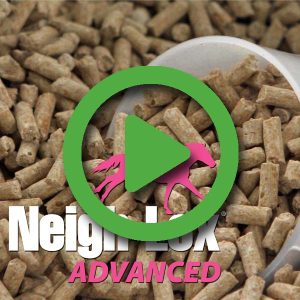
Neigh-Lox® Advanced provides a scientifically advanced blend of ingredients that work synergistically to maintain your horse’s digestive tract in peak...
» View Video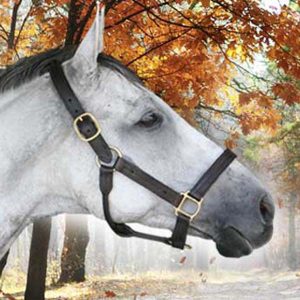
As the seasons change, so do the quality and content of your horse’s feeding program. Winterizing your horse with Kentucky...
» View Article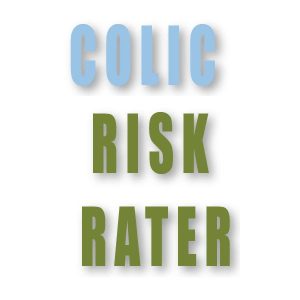
Do you worry about colic in your horse? Did you know you can reduce the threat of colic by identifying...
» View Article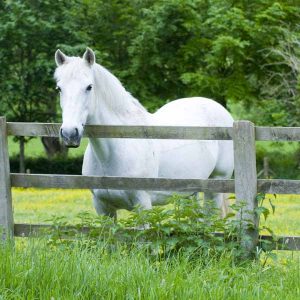
May 2009 Horse Health Article American Association of Equine Practitioners The number one killer of horses is colic. Colic is...
» View Article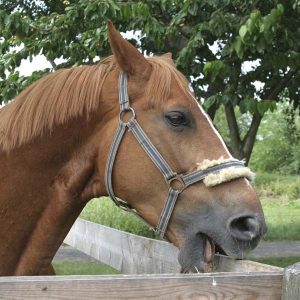
Once known as a stable vice, cribbing is now considered by equine behaviorists as a stereotypical oral behavior. Cribbing behavior...
» View Article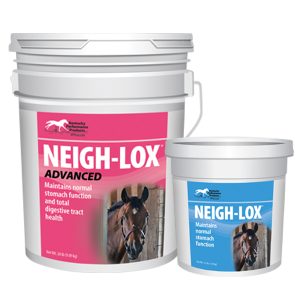
The original Neigh-Lox®, with the blue label, was developed in 1996 to address the ever-growing problem of stomach ulcers in horses....
» View Article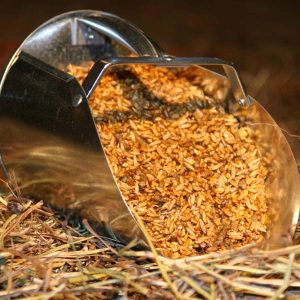
What is laminitis? Laminitis occurs when the tissues that connect the coffin bone to the hoof wall, called the laminae,...
» View Article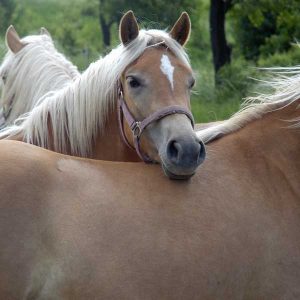
For years, horsemen have believed that the surefire way to sidestep gastric ulcers is full-time grazing. However, that widely held...
» View Article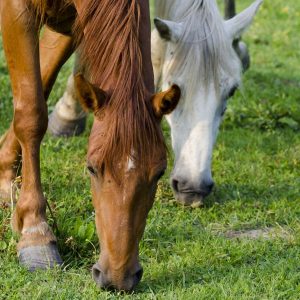
Veterinarians and horsemen recognize the harmful effects of gastric ulceration in their horses. Colic, chronic diarrhea, decreased appetite, and weight...
» View Article
"*" indicates required fields